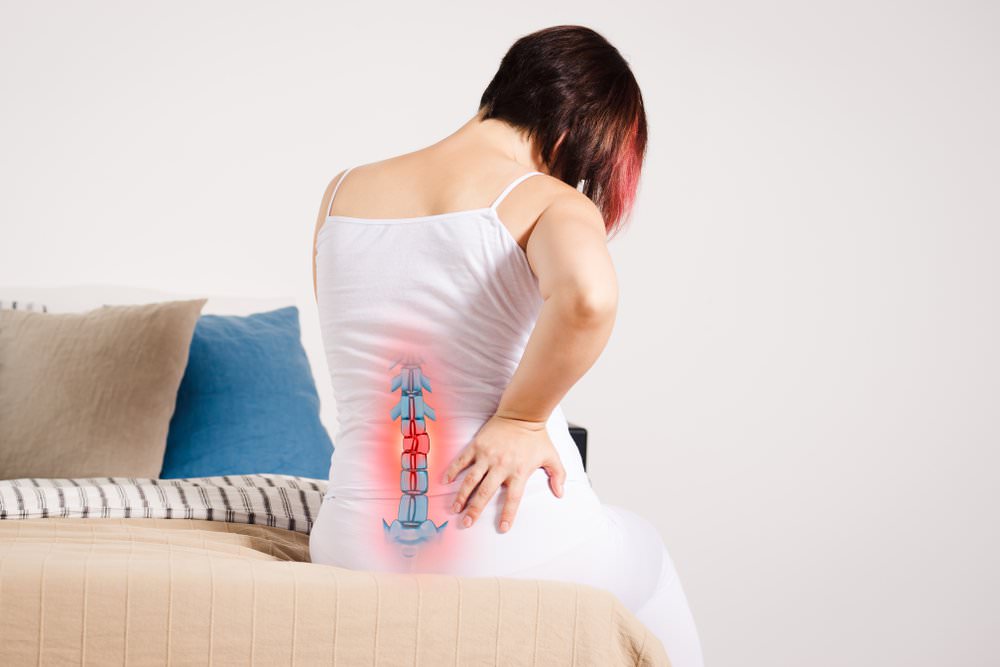A herniated disc is a painful and potentially debilitating condition that affects the spine. It occurs when a disc in the spine ruptures or bulges, putting pressure on the spinal nerve or nearby nerves and causing pain, weakness, and numbness. While some people may be able to manage the pain and symptoms with rest and physical therapy, others may experience more severe and chronic pain that greatly impacts their daily lives.
At Orthopedic Specialists of SW Florida, our team of spinal specialists are dedicated to providing the best care and unique treatment plan tailored to your specific condition.
Here is how to know if you have a herniated disc.
What Is A Herniated Disc?
A herniated disc, also known as a slipped or ruptured disc, is a condition that affects the spine. The spine is made up of vertebrae stacked on top of each other, separated by discs that serve as cushions to absorb shock and keep the spinal cord flexible. When a disc becomes herniated, it means that it has ruptured or bulged out of its normal position, putting pressure on the spinal nerves. Depending on the severity of the herniation, symptoms can range from mild discomfort to chronic and debilitating pain that can greatly affect everyday life.
What Are The Symptoms?
The symptoms of a herniated disc can vary depending on the location and severity of the disc herniation. Common symptoms include pain, weakness, numbness, and tingling in the affected area.
In the lower back, a herniated disc may cause leg pain that radiates down, commonly known as sciatica. The pain may be sharp or dull and can be accompanied by muscle weakness or spasms.
In the neck, a herniated disc can cause pain that radiates down the arm, often accompanied by a pins and needles sensation or numbness. Some people may also experience difficulty with fine motor skills such as buttoning a shirt or holding a pen.
Additionally, a herniated disc can cause bladder or bowel dysfunction in severe cases. Symptoms vary from person to person, and some people with herniated discs may not experience any symptoms at all. It is important to seek medical attention if you experience any symptoms of a herniated disc, as early diagnosis and treatment can prevent further complications and improve outcomes.
What Is The Cause?
There are several possible reasons for a herniated disc cause, which can occur anywhere along the spine. One common cause is spinal trauma or injury, such as a sudden impact or fall that causes a disc to rupture or slip out of place. Repetitive stress on the spine, such as heavy lifting or twisting motions, can also weaken the discs over time and lead to herniations.
As individuals age, the discs gradually lose water content and become less flexible, making them more prone to herniation. This natural degeneration of the spine can be accelerated by poor posture, sedentary lifestyles, and other habits that put undue stress on the back. Certain occupations, such as those that require heavy lifting or prolonged sitting, can also increase the risk of a herniated disc. In rare cases, risk factors may be caused by a genetic predisposition or a medical condition affecting the spine.
It is important to maintain a healthy lifestyle, practice good posture, and avoid repetitive stress on the spine to reduce the risk of a herniated disc.
How Can I Prevent A Herniated Disc?
While some people may be genetically predisposed to a herniated disc, there are several things that one can do in an attempt to prevent this condition.
Firstly, maintaining a healthy weight through good nutrition and regular exercise can help reduce the pressure on the spine and reduce the risk of disc herniation. Secondly, practicing good posture while sitting or standing, and avoiding prolonged periods of sitting or standing can also help. Additionally, one should avoid heavy lifting or improper lifting techniques and opt for more ergonomic solutions to reduce the strain on the back. Finally, reducing stress through methods such as meditation or yoga can also help prevent a herniated disc.
With these preventive measures, one can avoid the pain and discomfort that comes with a herniated disc and maintain a healthy spine.
How Is A Herniated Disc Treated?
The treatment for a herniated disc depends on the severity of the condition and the symptoms experienced. Here are some common treatment options:
- Pain management: Over-the-counter pain relievers, such as acetaminophen or nonsteroidal anti-inflammatory drugs (NSAIDs), can be used to manage mild-to-moderate pain. In more severe cases, prescription pain medication or epidural steroid injections may be needed to alleviate pain.
- Physical Therapy: A physical therapist can work with you to develop exercises that help to stretch and strengthen the muscles in your back, as well as improve your posture and flexibility.
- Lifestyle Modifications: Making changes to your lifestyle can help to relieve pain and prevent future herniations. This includes maintaining a healthy weight, practicing good posture, and avoiding repetitive motions and heavy lifting that puts stress on your back.
- Surgery: If other treatments do not provide relief, surgery may be necessary. The most common surgical procedure for a herniated disc is a discectomy, in which the damaged portion of the disc is removed. In some cases, a spinal fusion may also be needed to stabilize the spine.
If you believe you may have a herniated disc, it is extremely important to seek medical attention as soon as possible to reduce the risk of further damage and begin an appropriate treatment plan. With proper diagnosis, care, and lifestyle modifications, a herniated disc can be managed and avoided in the future.
For the best-quality care for musculoskeletal needs, contact our team of providers at Orthopedic Specialists of SW Florida for a comprehensive care plan tailored to your spinal needs and condition. Contact our office or schedule an appointment directly from our website today.


